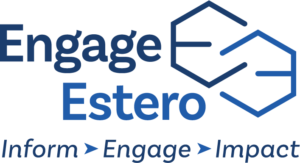By Dr. D. Rajtora MD, FAAAAI, Member of the Engage Estero Health Council and Allan Bowditch, Chief Communications Officer Engage Estero.
It is clear that most people rely upon the internet to answer their general questions concerning their health care. Dr Rajtora, a double board-certified physician who has practiced in allergy, asthma, and immunology for over 32 years, states that “the general population is overwhelmed by the copious amounts of material available on the internet.
Sadly, most of what they read is incorrect because they do not know which sites to view. Unfortunately, one does not have to be a qualified expert to advise on any given health topic. Anecdotal experience does not qualify for scientific knowledge.” So, where are the sources of this scientific Knowledge?
Know that Google is not always the best place to start a search. You’ll increase the odds of finding reliable information if you begin somewhere trustworthy, such as a government website. Online symptom checkers, meanwhile, are often inaccurate, though they tend to err on the side of caution, says Ateev Mehrotra, MD, a professor of healthcare policy at the Harvard Medical School. But you should treat your findings as just one factor to decide whether and where to seek care1.
It is always worthwhile before starting an internet search, trying your own doctor’s online patient portal. These often include links to credible resources and serve as a way to ask your doctor less urgent questions.
Although each of our 50 States has between one to fifteen or more medical schools, all of which have websites, only a few provide helpful medical information. One very worthwhile site among the medical schools worthy of examination is The University of Iowa and Clinics: https://uihc.org/. If you click on the link and then go to “Search,” then go to “Health Topics,” type in your question or area you wish to explore. This site provides accurate medical facts for consideration when examining treatment options and information about various medical conditions.
Another excellent site is called Cochrane. https://www.cochrane.org/.
“Cochrane summarizes the findings so people making important decisions – you, your doctor, the people who write medical guidelines – can use unbiased information to make difficult choices without first reading every study out there…” Sifting the evidence as reported by The Guardian, 14 September 2016.
Plain Language Summaries (PLSs) that help people to understand and interpret research findings are rare but are included in all Cochrane Reviews. PLSs are created using standard content, structure and language to ease understanding and translation. Cochrane has over 7,000 PLSs, which you can find using the search box at https://www.cochrane.org/evidence. Appended are the medical topics covered by this organization.
There are also well-known multispecialty clinics, such as the Mayo Clinic and similar well-thought-of clinics throughout the United States, that have websites tailored for the general population. These sites are all vetted and informative, with objective information. Government sites and those run by medical associations are among the most credible and worthy of a look at in the first or second instance!
Here is a list of important and accurate medical information where you should look.
- The National Institutes of Health: https://www.nih.gov/
- Medline Plus http://www.MedlinePlus.gov.
- WebMD https://www.webmd.com/
- The Mayo Clinic https://www.mayoclinic.org
- Sloan Kettering (cancer specialty) https://www.mskcc.org/
- Cleavland Clinic https://my.clevelandclinic.org/
- Cedars-Sinai Medical Center https://www.cedars-sinai.org/home.html?&msclkid=da9741a65abf15e6442e27ce63a9e330&utm_source=bing&utm_medium=cpc&utm_campaign=CED_Branded_Branded_Pure%20Brand_LA%20DMA_Bing_BRD&utm_term=cedar%20sinai%20hospital%20los%20angeles&utm_content=Cedars%20Sinai&gclid=da9741a65abf15e6442e27ce63a9e330&gclsrc=3p.ds
- Johns Hopkins https://www.jhu.edu/
Please do not rely upon pharmaceutical ads on TV or the web; they are there to encourage a person to use their drugs, preferably over a competitor’s, which may be actually better or less expensive than the one advertised. Be aware that when a patent runs out on a drug, and the generic alternative becomes available, drug companies may change the chemical formula of their initially patented formulation to acquire a new patent, which may be no more effective than the old drug, just more expensive. The generic alternative, if the original product was providing satisfactory treatment, is, with the physician’s agreement, worth adopting. Lastly, when one is trying to verify the benefit of a new procedure or drug, one can go to the Cochrane website (mentioned above), which provides a metanalysis of all studies on a subject or drug and scientifically evaluates all data published on that topic to decide if it is indeed worthwhile or has limitations.
In summary:
- Be wary of anything that recommends a product that can treat your condition.
- Be cautious about using medical information from social media and online forums.
- Be cautious if you see anything contradicting official guidance, like the idea that a usual treatment is unsafe.
- Recent research shows that systems like ChatGPT, which are sometimes used to answer search queries, seem to be more accurate than symptom checkers, but they can also be wrong or generate false but scientific-sounding information.
References
1 Can You Trust Health Info You Read Online? Kevin Loria, September 11, 2023. https://www.consumerreports.org/health/medical-conditions/can-you-trust-health-info-you-read-online-a1139078094/
Appendix
Medical topics covered in the Cochrane Website.
| Child health | Effective practice & health systems |
| Wounds | Consumer & communication strategies |
| Skin disorders | Cancer |
| Eyes & Vision | Diagnosis |
| Neurology | Gynaecology |
| Insurance medicine | Lungs & airways |
| Developmental, psychosocial & learning problems | Rheumatology |
| Orthopaedics & trauma | Complementary & alternative medicine |
| Pregnancy & childbirth | Pain & Anaesthesia |
| Heart & circulation | Public health |
| Gastroenterology & hepatology | Health & safety at work |
| Infectious disease | Mental health |
Be Informed,
Get Engaged,
and Make an Impact!



